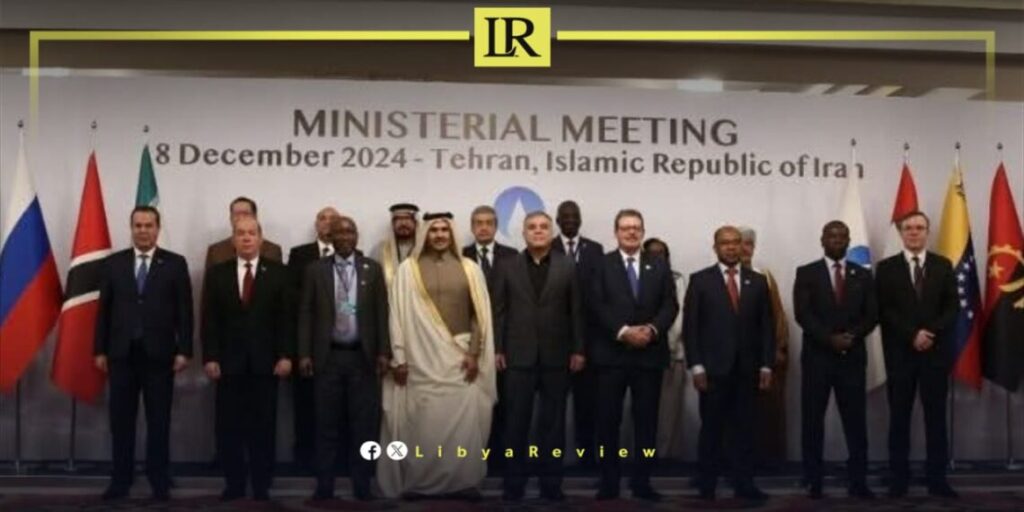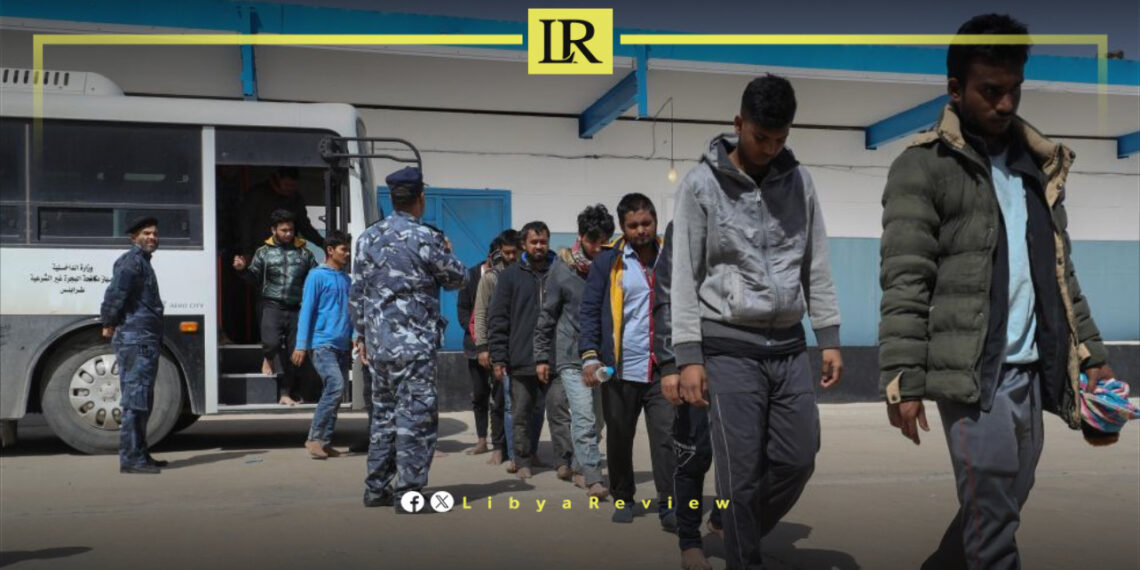NATIONAL SECURITY ISSUES
- Intense clashes erupted in the city of Al-Zawiya today between two armed groups, identified as the “Qasab Group” and the “Al-Shurafa Group,” as they vied for control over key parts of the city. Eyewitnesses reported that the violent confrontations escalated near Al-Zawiya Oil Refinery, a critical infrastructure in the area, resulting in a rocket striking the facility. The impact caused a massive fire, with thick plumes of black smoke billowing into the sky. According to locals, heavy and medium weaponry was used in the clashes, which unfolded in densely populated residential neighborhoods and in close proximity to the refinery.
- The Chairman of the National Institution for Human Rights in Libya (NIHRL), Ahmed Hamza, has warned that the flow of Sudanese refugees into neighboring countries, including Libya, Egypt, and Chad, is expected to increase significantly in the coming weeks. Speaking to Al-Hurra, Hamza highlighted the growing burden these refugee inflows place on Libyan authorities and humanitarian organizations on the ground, urging for increased support. “Doubling aid for refugees and migrants is the first line of defense against irregular migration to Europe,” Hamza emphasized. Political analyst Ismail Al-Ramli estimates the true number of Sudanese refugees at around 500,000, calling on Western nations to take full responsibility. “Host countries like Libya are grappling with economic challenges, making it essential for global powers to step up,” Al-Ramli stated.
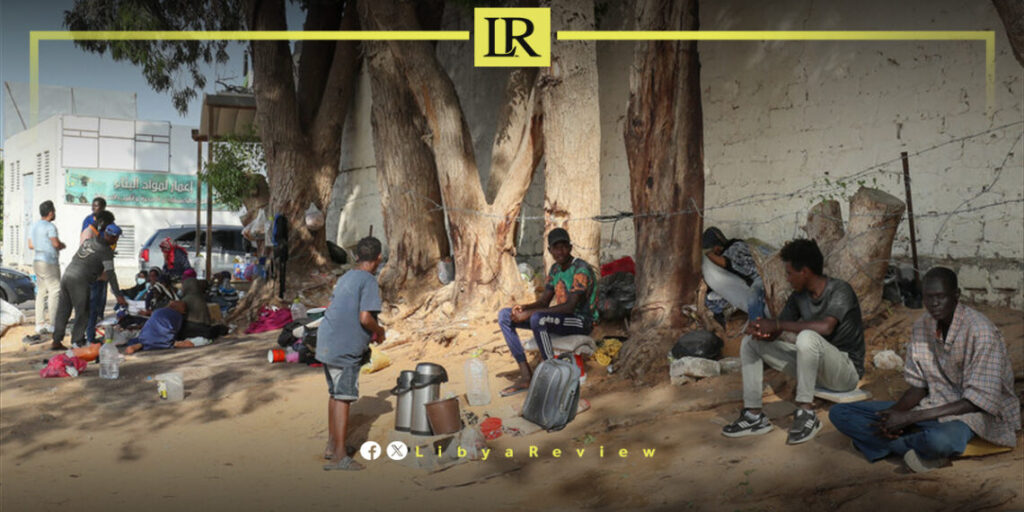
- Libyan authorities announced that they have successfully freed two Egyptian women and two girls who were kidnapped in Tripoli. The incident involved a violent attack and a ransom demand, but it ended with the swift intervention of the police. The ordeal began when a driver reported the situation to the Bab Al-Bahr Police Station in Tripoli. He revealed that the kidnappers had demanded a ransom of 5,000 Libyan dinars to release the victims. They even allowed the women to call their mother in Egypt, instructing her to deliver the money to Bourguiba Mosque Square in Tripoli. A woman, acting as a middleman for the gang, was designated to collect the cash. Libyan police quickly devised a plan to intercept the criminals. Officers set up an ambush at the handover location, arresting the female suspect when she arrived in a blue Hyundai Azera. The vehicle’s owner was also detained. After further investigation, the rest of the gang members were apprehended, ensuring the safety of the victims.
- Libyan authorities have taken significant steps to address irregular migration by transferring 164 migrants from the Qanfouda Detention and Deportation Center in Benghazi to the capital, Tripoli, to complete their deportation procedures. The group includes 135 Nigerians, eight Ghanaians, 16 Eritreans, and five Somalis, according to the Ministry of Interior. This move is part of a broader strategy by Libya’s Anti-Illegal Immigration Agency to streamline repatriation processes, ensure compliance with migration laws, and enhance coordination between its branches in various cities. Officials aim to reduce reliance on detention centers by accelerating procedures and ensuring that migrants are returned to their home countries in a timely manner. In a separate operation near Tobruk, security forces intercepted a fishing vessel carrying 15 migrants from Sudan and Pakistan. The operation followed a tip-off from a local resident about unusual activity off the city’s coast. The migrants were detained and are undergoing legal procedures for repatriation.
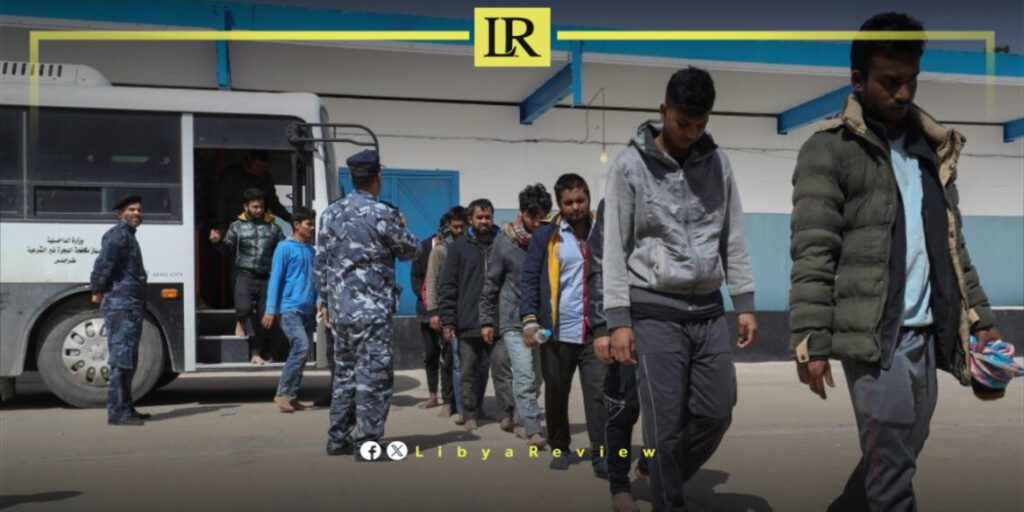
- A German humanitarian organisation, SOS Humanity, has criticised the European Union’s financial support for managing migration in Libya and other countries. It claims the funds contribute to serious and increasing human rights violations. In a statement, the German NGO highlighted that from 2016 to 2027, the EU and its member states have allocated at least €327.7 million for border management in Libya and Tunisia. These funds, according to SOS Humanity, enable “illegal pushbacks, arbitrary detention, and denial of asylum rights” in Libya, undermining European values and international law. The organisation accused the Libyan Coast Guard and Rescue Coordination Centre of failing to conduct sea rescues in line with international law, despite receiving EU funding. It claimed that between 2016 and 2024, over 145,000 migrants fleeing Libya were intercepted and returned, often facing detention and abuse.
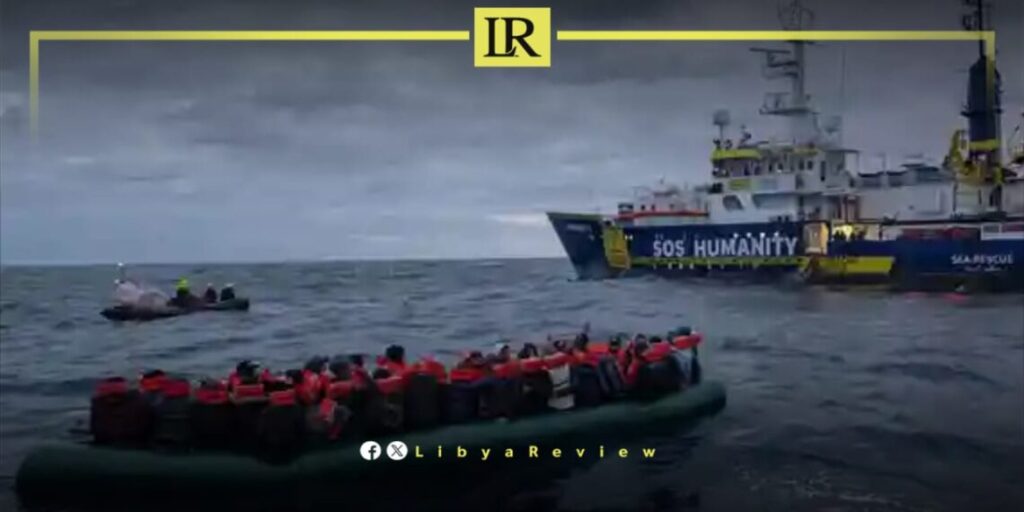
- The United Nations High Commissioner for Refugees (UNHCR) has reported that over 210,000 Sudanese refugees have arrived in Libya since April 2023. Among them, 55,828 refugees are registered at UNHCR’s registration center in Tripoli. The increase in refugee numbers is attributed to the ongoing civil war in Sudan, which began in April 2023. This surge has emphasized the urgent need for enhanced humanitarian aid to support both refugees and migrants in Libya. The UNHCR stressed the importance of providing additional humanitarian assistance to areas hosting Sudanese refugees, particularly in southern Libya. The region has been grappling with worsening local humanitarian needs due to the influx. According to the commission’s data, the city of Kufra issued approximately 125,000 health certificates in 2024, accommodating 173,000 Sudanese refugees in the city alone. The influx is estimated at 400–500 new arrivals daily.
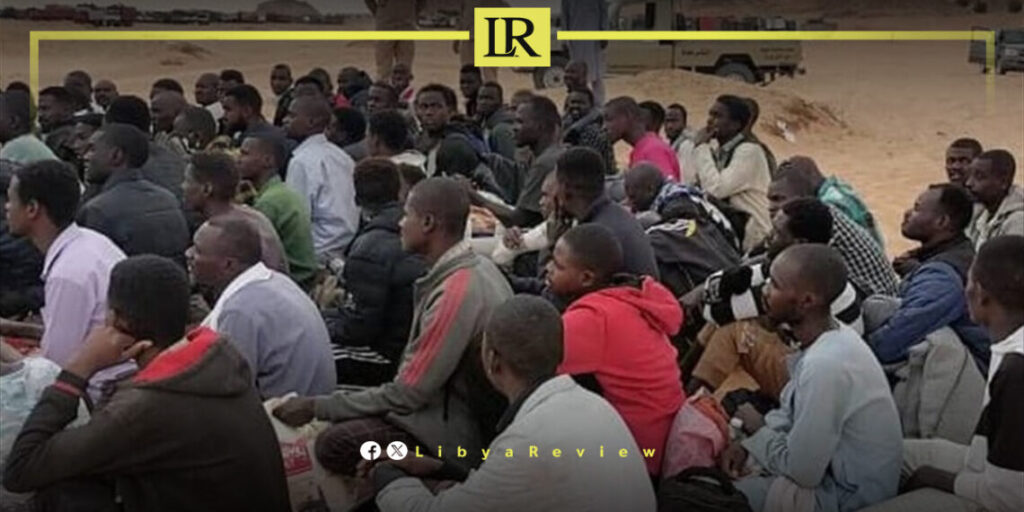
NATIONAL POLITICS AND SOCIAL ISSUES
- The United Nations High Commissioner for Refugees (UNHCR) has delivered essential medical equipment to seven healthcare facilities in Kufra and Benghazi. In collaboration with Libya’s Ministry of Health, this initiative aims to enhance healthcare services for both residents and Sudanese refugees who have sought safety in Libya amidst the ongoing crisis in Sudan. The support underscores UNHCR’s commitment to strengthening Libya’s healthcare infrastructure and addressing the growing needs of vulnerable populations, including refugees and displaced individuals. The delivered equipment is expected to significantly improve the capacity of these healthcare facilities to provide medical care, ensuring better health outcomes for thousands of beneficiaries in the region.
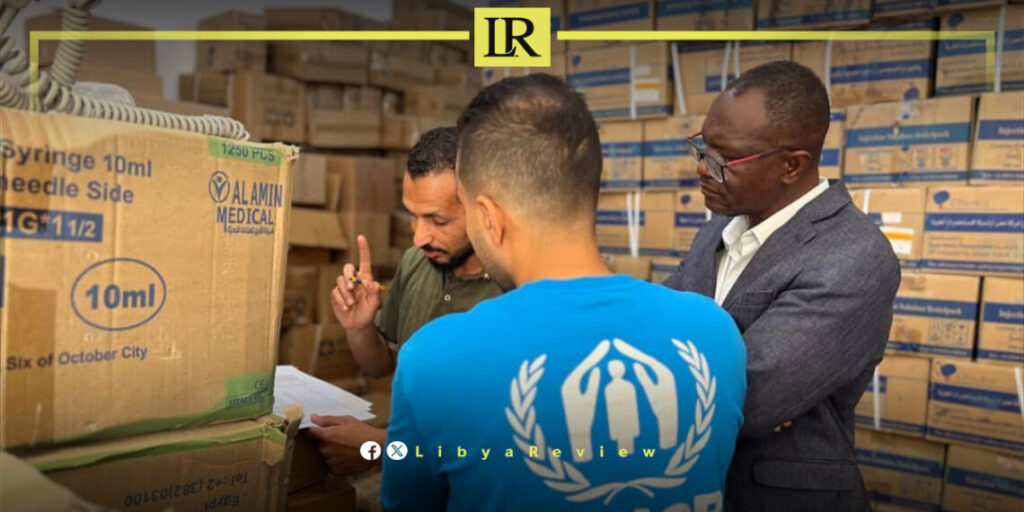
- A Russian cargo plane departed from Hmeimim Airbase in Syria, bound for Libya, according to a Syrian security official stationed near the Russian base in Latakia. The official told Reuters that additional Russian flights are expected in the coming days. Satellite images published by The Washington Post, sourced from Maxar Technologies, showed Russian cargo planes on standby at the airbase, preparing to transport heavy equipment. The images revealed dismantling operations involving Ka-52 attack helicopters and the relocation of S-400 air defense systems, signaling a major logistical effort. Reports suggest that Russia is intensifying its military operations in Libya, with the transfer of advanced weaponry and personnel. Samer Al-Atrush, a journalist for The Times, confirmed on X (formerly Twitter) that Russian forces are amassing at Hmeimim, with regular cargo flights underway. Local factions, such as Hay’at Tahrir al-Sham, reported being informed of the departure of Russian personnel from the base.
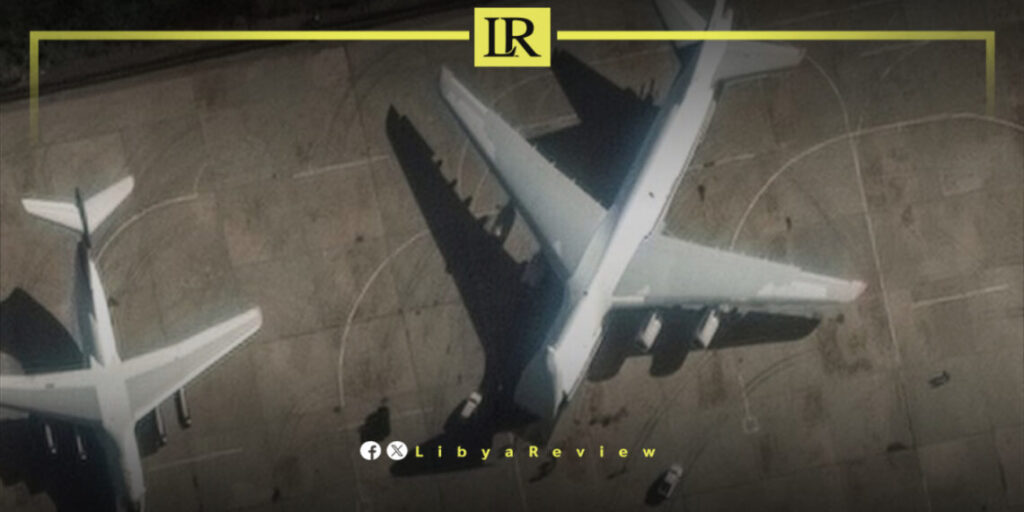
- Marshal Khalifa Haftar, Commander of the Libyan National Army, has proposed a new initiative to Denis Sassou Nguesso, President of the Republic of Congo and Chairperson of the African High-Level Committee on Libya, aiming to secure the success of comprehensive national reconciliation. This proposal underscores the necessity of consensus for building a stable and secure future for Libya, as stated by the General Command’s media office. The high-profile meeting, which took place on Tuesday evening in Benghazi, was also attended by Aguila Saleh, Speaker of the Libyan House of Representatives, and Osama Hammad, Prime Minister appointed by the parliament. The discussions focused on reinforcing the reconciliation efforts in Libya and stressed the importance of advancing this project to achieve stability and consensus among all Libyan factions. According to the General Command’s media office on Facebook, President Sassou Nguesso praised Haftar’s initiative, highlighting it as a significant step towards achieving comprehensive national reconciliation and forming a foundation for uniting Libyans and stabilizing the country.
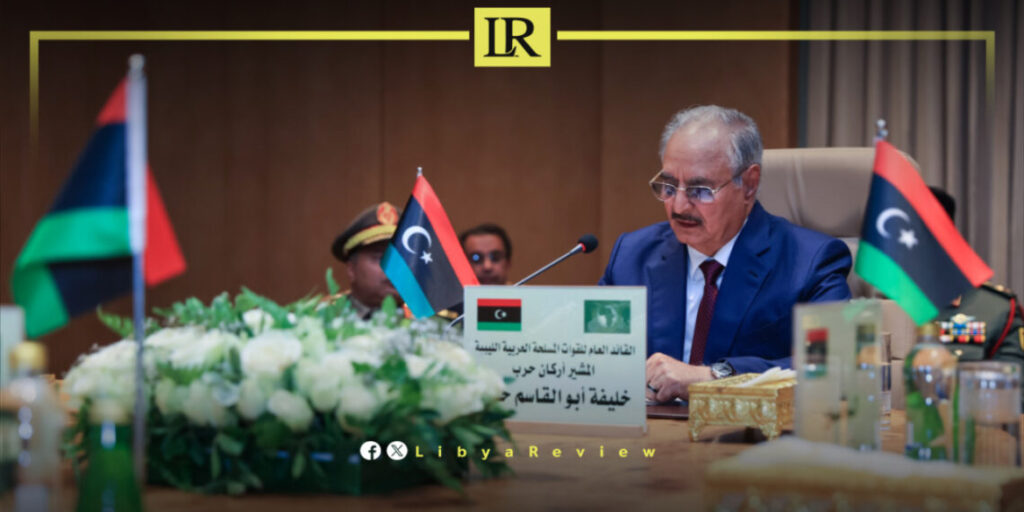
- The Chairman of the Foreign Affairs Committee in the Libyan House of Representatives, Youssef Al-Agouri, called for intensified national and international efforts to combat the devastating effects of recent floods in Libya’s western region. Expressing solidarity with affected communities, particularly in Tarhuna and Gharyan, Al-Agouri emphasized the urgent need to support those impacted, particularly given Libya’s crumbling infrastructure. Al-Agouri highlighted the pressing need to prioritize climate change and its growing impact on the Mediterranean region, urging immediate action to mitigate future disasters. He proposed a comprehensive national plan, including the establishment of effective early warning systems, revising building and urban planning standards, empowering the National Safety Authority, and enhancing international cooperation to leverage neighboring countries’ expertise in emergency responses.
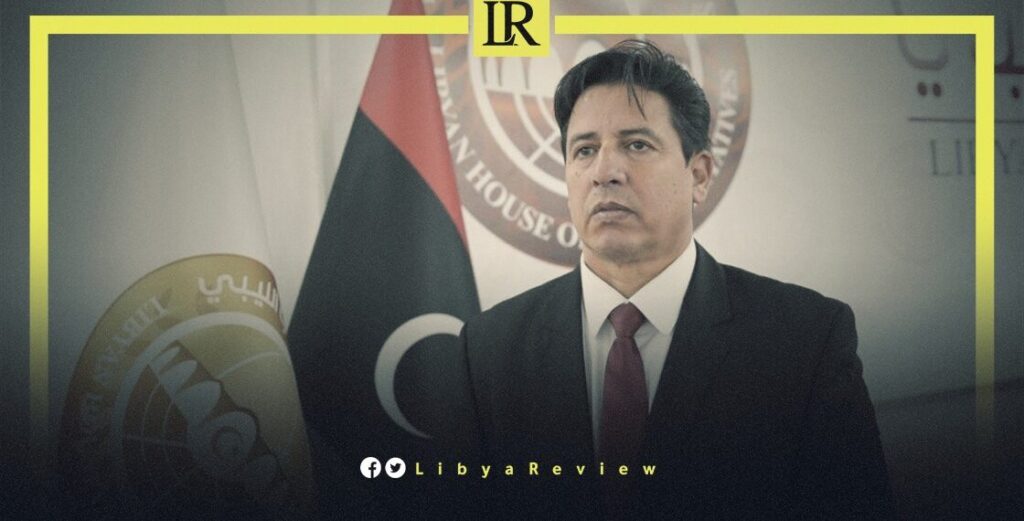
- The fuselage of Pan Am Flight 103, which exploded over Lockerbie 36 years ago, is being transferred to the United States ahead of the trial of Abu Ajila Masoud, according to Herald Scotland newspaper. Masoud, accused of helping to make the bomb that caused the tragedy, is set to stand trial in May 2025 on charges including the destruction of an aircraft resulting in death. Abdelbaset al-Megrahi, a former Libyan intelligence officer, remains the only individual convicted in connection with the bombing. In 2001, he was found guilty of 270 counts of murder by a Scottish court convened in The Hague. Released on compassionate grounds in 2009 after being diagnosed with terminal cancer, al-Megrahi died in Libya in 2012.

INTERNATIONAL RELATIONS
- Libya’s Attorney General, Al-Siddiq Al-Sour, held high-level discussions in Paris with France’s National Counterterrorism Prosecutor. The meeting, which took place at the National Counterterrorism Prosecutor’s Office, focused on enhancing cooperation in criminal justice, particularly in tackling terrorism, war crimes, and crimes against humanity. The talks underscored the importance of joint efforts in addressing transnational crimes, with both parties exploring mechanisms for conducting joint investigations. Such collaborative initiatives aim to bridge gaps in cross-border criminal prosecution and ensure accountability for perpetrators of serious crimes.
- Libyan Foreign Minister of the Parliament-designate government, Abdel-Hadi Al-Hwaij, hosted a high-level delegation from Bulgaria’s University of National and World Economy (UNWE), led by its President, Prof. Dimitar Dimitrov. Discussions focused on strengthening Libya-Bulgaria ties, particularly in economics, trade, and culture. Al-Hwaij emphasised the importance of “conference diplomacy” as an effective tool for fostering collaboration. Both sides explored academic exchange programmes between Libyan and Bulgarian universities, notably between Benghazi University and UNWE. The discussions also highlighted the cultural, scientific, and commercial aspects of cooperation as key forms of modern diplomacy.
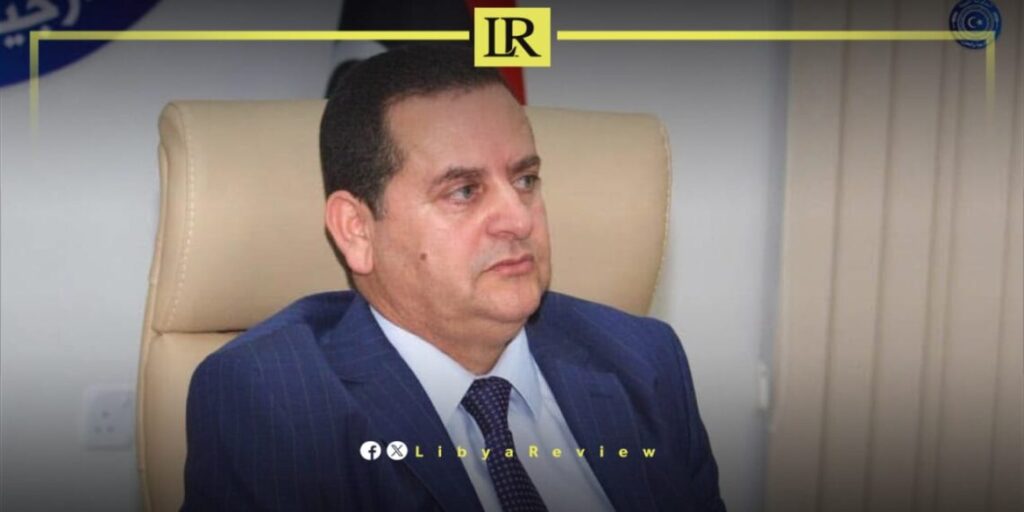
- Libya’s Acting Minister of Oil and Gas in the Government of National Unity, Khalifa Abdulsadiq, participated in the ministerial meeting of the Gas Exporting Countries Forum (GECF) held on 8 December 2024 in Tehran, Iran. The meeting focused on adopting several resolutions proposed by the forum’s executive council. Notably, Minister Abdulsadiq was appointed to chair the GECF Ministerial Meeting for 2025, reflecting Libya’s increasing prominence within the energy sector. On the sidelines of the forum, Abdulsadiq held discussions with Qatar’s Minister of State for Energy Affairs, Saad Sherida Al-Kaabi. The two ministers explored mutual interests and opportunities for collaboration in the energy sector, emphasising the potential for enhanced bilateral cooperation.
